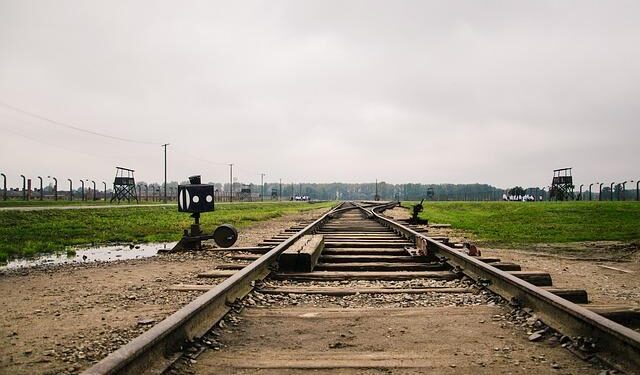Poland has condemned recent blasts targeting its rail infrastructure as an “act of state terrorism” orchestrated by Russia, escalating tensions amid the ongoing conflict in Eastern Europe. Polish Foreign Minister highlighted the sabotage as a deliberate attack on the country’s critical transport network, underscoring Moscow’s increasingly aggressive tactics in the region. The incident has drawn swift international attention, raising concerns over security and stability across Europe.
Poland Condemns Rail Sabotage as State-Sponsored Terrorism by Russia
Polish officials have unequivocally denounced the recent sabotage targeting the nation’s railway network, labeling it an act of “state-sponsored terrorism” attributed directly to the Russian government. The Foreign Minister emphasized that this deliberate disruption not only endangers critical infrastructure but also aims to destabilize regional security amid ongoing geopolitical tensions in Eastern Europe. Authorities reported extensive damage to railway lines, leading to widespread transport chaos and raising concerns over civilian safety.
Key points highlighted by the Polish government include:
- Immediate investigations launched with international support to trace the perpetrators.
- Enhanced security measures deployed along vulnerable transport corridors.
- Calls for unity within the European Union to respond decisively to such hybrid threats.
| Impacted Area | Extent of Damage | Response Status |
|---|---|---|
| Warsaw-Kraków Line | Severe track destruction | Repair crews deployed |
| Border Crossing Points | Operational delays | Heightened security |
| Freight Yards | Equipment sabotage | Investigation ongoing |
Implications for European Security and NATO Response Strategies
The recent sabotage of critical rail infrastructure in Poland marks a significant escalation in state-sponsored aggression, compelling NATO to reassess its defense posture in Eastern Europe. Polish officials have unequivocally labeled the attacks as state terrorism orchestrated by Russia, highlighting a direct threat not only to Poland’s sovereignty but to the security architecture of the entire European continent. This incident amplifies the urgency for NATO members to enhance intelligence-sharing mechanisms and boost rapid response capabilities to preempt similar covert operations that undermine regional stability.
In response, NATO is expected to intensify its multifaceted strategy focused on deterrence and resilience, including:
- Increasing troop deployments in vulnerable border territories to reinforce deterrence
- Enhancing cybersecurity frameworks to defend critical infrastructure from hybrid warfare tactics
- Strengthening diplomatic coordination among member states to present a unified front against aggression
- Expanding intelligence and surveillance investments to detect and disrupt sabotage activities more effectively
| Response Measure | Projected Impact | Implementation Timeline |
|---|---|---|
| Deployment of Rapid Reaction Forces | Enhanced border security & deterrence | 3-6 months |
| Cyber Defense Upgrades | Improved critical infrastructure protection | 6-12 months |
| Intelligence Sharing Protocols | Faster threat identification | Immediate |
Calls for Enhanced Intelligence Sharing and Strengthened Border Protections Across Europe
In the wake of the recent sabotage on Poland’s railway infrastructure, European officials have intensified calls for robust intelligence sharing mechanisms to prevent further acts of cross-border aggression. Diplomats and security experts emphasize that fragmented information exchange between member states creates vulnerabilities that hostile actors can exploit. There is a growing consensus that enhanced cooperation will not only improve threat detection but also accelerate coordinated responses to complex security challenges.
Moreover, experts outline several critical measures for fortifying Europe’s external borders, including:
- Deployment of advanced surveillance technologies such as AI-powered monitoring systems to identify suspicious activities in real time.
- Strengthening border personnel training to ensure rapid assessment and action on emerging threats.
- Increasing joint border patrols leveraging resources and expertise from multiple European countries.
- Establishing unified protocols for information sharing, investigation, and crisis management.
| Security Measure | Expected Impact |
|---|---|
| AI Surveillance Systems | Faster threat identification |
| Enhanced Training | Improved response efficiency |
| Joint Patrols | Stronger territorial control |
| Unified Protocols | Streamlined crisis management |
To Conclude
As tensions between Poland and Russia escalate in the wake of the recent rail sabotage, international attention remains focused on the unfolding developments. Warsaw’s accusations of state-sponsored terrorism underscore the deepening mistrust and geopolitical friction in the region. The coming days will be critical in determining how diplomatic channels respond and whether further measures will be taken to address this serious breach of security. The situation continues to evolve, with Europe and the world closely monitoring for any new developments.















